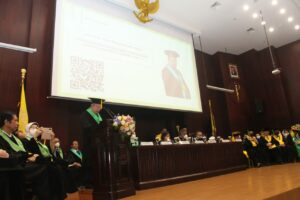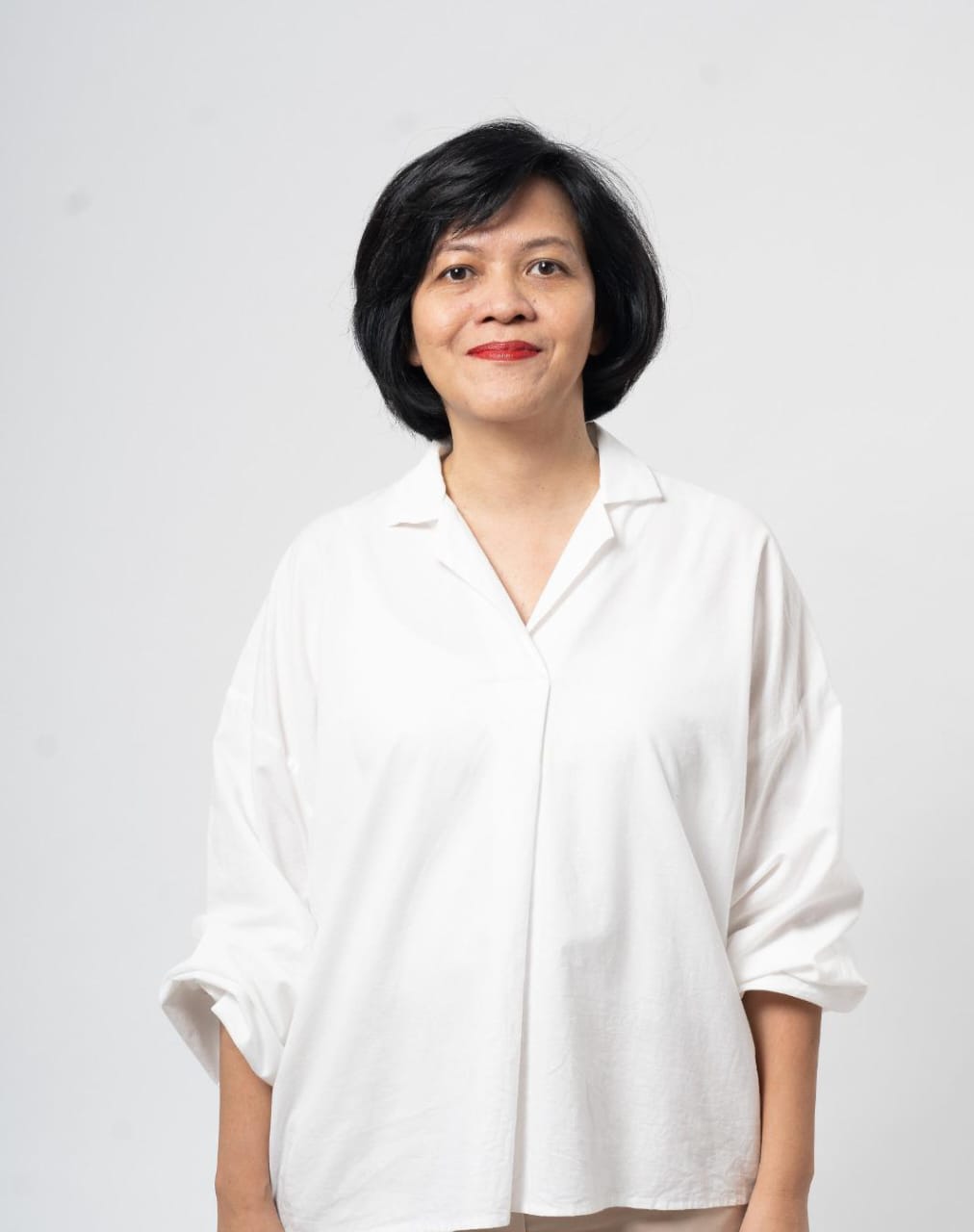
Prof. Dr. dr. Irawan Mangunatmadja, Sp.A(K), Professor of FKUI: New Paradigm to Handle Epilepsy Cases in Children
Epilepsy is a neurological disease that often affects children. During the Covid-19 pandemic, dr. Cipto Mangunkusumo Hospital (RSCM) recorded a decline of the visits of epilepsy patient to the hospital to 63.1% from the previous year’s total. Medical record of Outpatient Polyclinic of RSCM in 2020–2022 shows that the number of pediatric neurology polyclinic patients was 14,402 patients, with epilepsy patient visits of 5,760 patients (40%).
Irawan Mangunatmadja sees the need for a new paradigm in the comprehensive management of epilepsy in children after the Covid-19 pandemic. This new paradigm includes a selective selection of Anti-Epileptic Drugs (AEDs), ownership of Social Health Insurance Administration Body (BPJS Kesehatan) insurance for pediatric patients with epilepsy, completeness of immunizations for children, access to referrals to Teaching Hospitals for pediatric patients, and involvement of parents of children with epilepsy in Ruang Peduli Epilepsi Anak (RPEAI).
So far, there has been no agreement regarding the management given in the Emergency Room (ER) if a pediatric patient with epilepsy comes with a history of seizures. Research at RSCM showed that 77% of patients who were given 10 mg/kg/time of intravenous (IV) phenobarbital boluses no longer had seizures. Therefore, it is recommended that patients with seizures are given IV phenobarbital in that dose. Unfortunately, IV phenobarbital drugs are currently limited in public health centers and hospitals.
Lately, many epilepsy patients tend to have Drug-Resistant Epilepsy (DRE). To prevent this, provisions are set in the giving and selection of AEDs. It is necessary to determine comorbidities in patients and risk factors that can cause them to become patients with DRE. The choice of initial AED for epilepsy patients is first-line AED according to the patient’s seizure type. If the initial AED has reached the maximum dose and the patient continues to have seizures, second-line AED is recommended as a combination.
If the patient has a DRE, the next treatment option is the ketogenic diet. The success of the ketogenic diet is better than the latest AED. In general, a ketogenic diet can reduce seizure frequency by 50% or more. This method can use special milk or can be done in a diet with homemade meals (Modified Atkins Diet). If the ketogenic diet does not work, the patient can consult a neurosurgeon for the possibility of epilepsy surgery.
In the new paradigm of treating epilepsy in children, epilepsy patients are strongly suggested to complete their routine immunizations and the Covid-19 vaccination. The exclusive criteria for epilepsy patients who cannot receive the Covid-19 vaccination are patients whose seizures still recur frequently, whose epilepsy is caused by an autoimmune disease, and who also have a decline in consciousness. Apart from these conditions, epilepsy patients are required to receive routine immunizations and the Covid-19 vaccine.
Epilepsy patients are required to have health insurance because treatment and health care require quite a lot of money. Epilepsy patients at least have BPJS Kesehatan insurance that can be applied at the local hospital to get comprehensive services and have referral facilities to the Teaching Hospital. This is because the availability of AEDs in hospitals only meets the needs of first and second line AEDs, while patients with DRE who often experience emergencies are advised to have referral facilities to a teaching hospital in the nearest city.
Monitoring of epilepsy patients during treatment is carried out through an companion book for epilepsy patients and an epilepsy monitoring application. The Neurology Division of Pediatric Medical Staff of RSCM and FKUI has Buku Pemantauan Epilepsi Anak (Epilepsy Monitoring Book for Children) and Aplikasi Pemantauan Epilepsi (Epilepsy Monitoring Application) to monitor seizure frequency, adherence to AEDs, and quality of life of pediatric patients with epilepsy.
In addition to affecting the patient’s quality of life, epilepsy also affects parents’ limitations in the realm of social functioning and mental health. Therefore, the patient’s parents are advised to join Ruang Peduli Epilepsi Anak Indonesia (RPEAI), which facilitates parents to ask questions or seek consideration from specialist doctors and a team of experts for more appropriate treatment for their children.

Thanks to this finding, Prof. Dr. dr. Irawan Mangunatmadja, Sp.A(K) was successfully inaugurated as a Tenured Professor in the Field of Pediatrics, Faculty of Medicine, Universitas Indonesia, on Saturday (11/2). The professor inauguration procession was led by Rector of UI Prof. Ari Kuncoro, S.E., M.A., Ph.D., at Imeri Hall, UI Salemba Campus.
The inauguration also attended by the Minister of Health of the Republic of Indonesia Ir. Budi Gunadi Sadikin, CHFC, CLU.; Spokesperson for the Ministry of Health and Main Director of Sulianti Saroso Hospital dr. Mohammad Syahril, Sp.P, MPH .; Secretariat General of Health Services, Ministry of Health of the Republic of Indonesia, dr. Soenarto; Main Director of RSCM, dr. Lies Dina Liastuti, SpJP(K), MARS, FIHA.; Professor of the Department of Medical Education FKUI and Association of Indonesian Medical Education Reviewers, Prof. Dr. dr. Retno W. Subaryo, SpKK(K).; and Advisor and Founder of PT Blue Bird as well as Chairman of MWA UI for the 2007–2012 period, dr. H. Purnomo Prawiro.
Prof. Dr. dr. Irawan graduated from the General Practitioner Program of FKUI in 1984, the Specialist Program in Pediatrics of FKUI in 1993, and Doctoral Program of Pediatrics in 2021. Prof. Dr. dr. Irawan also won the Indonesian Association of Pediatricians AH Markum Award in scientific writing in Pediatrica Indonesiana magazine. Several scientific works published by Prof. Dr. dr. Irawan are Risk Factors Predicting Intractability in Focal Epilepsy in Children Under 3 Years of Age: A Cohort Study (2021); Risk Factors for Drug Resistance in Epileptic Children with Age of Onset Above Five Years: A Case-Control Study (2021); and The Role of Clinical Diagnostic Criteria for Anti-N-Methyl-D-Aspartate Receptor Encephalitis in Children: A Case Report (2022).
See more:



